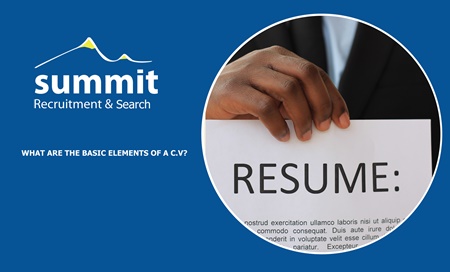We aren’t born knowing how to write a great CV, so it’s up to you to find out for yourself how to get the basics right. From font size and format to photos and filling in the gaps, there is a certain etiquette that should rarely be broken.

Recruiters and employers receive constant streams of applications – don’t let a basic mistake send yours straight to the bottom of the pack.
Below is a guide that answers 6 crucial questions:
1) How long should a CV be?
When it comes to length, try to think of your CV as a tasty appetizer that will get people coming back for more.
It should be around 2 pages long to ensure that you get your message across quickly, without dragging on like an old encyclopedia, boring employers and recruiters.
If you feel your experience is as good as gold (and listing it all will make you a shoe-in for the job), don’t worry too much about going over. Just be sure to keep it at 3 pages or less.
2) What font should I use in my CV?
The saying ‘keep it simple stupid’ exists for a reason and is unquestionably a principle that applies here.
Use a simple font that looks professional and is easy for recruiters and employers to read. For example (Tahoma, Times New Roman and all time favorite Cambria).
Size matters too – you can’t go wrong if you stick around the 10/12pt mark.
3) Should I include a photo on my CV?
Generally speaking, your best profile picture didn’t grace its presence on your CV.
Unless you are applying for an acting or modelling job (which would most likely specifically request photographs), there is no need to include one on your CV. It will take up space that could be better used with text that demonstrates the value of hiring you. Show them how you’re so much more than just a pretty face.
4) Should I hide employment gaps on my CV?
Take the guesswork out of your CV.
You don’t want recruiters or employers scratching their heads trying to fill the gaps themselves, so if you have long periods of unemployment you should be up front and explain them. Keep this short and sweet, after all, it’s just to let them know what was keeping you occupied during that time.
Ideally use constructive reasons such as personal projects, study or travelling.
5) Should I include interests on my CV?
As a general rule, only include interests if they are relevant to the roles you are applying for and will make a positive impact on your applications.
If you feel including your passions or pastimes adds to the profile you want to show your employer, put them in, but don’t get too carried away. Always keep it as professional as possible.
6) Should I include my date of birth on my CV?
Age is only a number, right?
Employers do not make recruitment decisions based on a candidate’s age, so there’s no need to include your date of birth.













